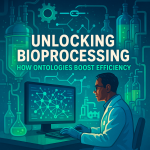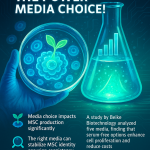🌱 The aim is to boost the expression of complex protein drugs. By analyzing amino acids, researchers hope to predict which antibodies can be manufactured successfully at commercial scales.
🧪 Collaboration with DeepSeq.AI is key to this innovative approach.
Introduction:
This article discusses a novel approach to protein production optimization using artificial intelligence (AI) in Chinese Hamster Ovary (CHO) cells. Researchers from New York, in collaboration with DeepSeq.AI, aim to improve the manufacturability of protein-based drugs by leveraging a comprehensive library of molecules and the predictive capabilities of AI.
- Researchers plan to screen a library of 1010 molecules with the assistance of an AI model to predict the expression of protein-based drugs in CHO cells.
- Dr. Susan Sharfstein emphasized the challenge of selecting molecules that exhibit promising binding properties but lack satisfactory expression at scale.
- The collaboration aims to compile a library of single-chain antibodies to analyze the impact of amino acids on production expressibility within CHO cells.
- The methodology involves cloning the library into expression vectors, transfecting them into CHO cells, and using fluorescent labeling to identify effective expressers.
- Future goals include extending the approach to other antibody types, such as single-chain FV molecules, to facilitate the production of bispecific antibodies.
Conclusion:
The initiative to optimize protein production through AI-assisted methodologies represents a significant advancement in biopharmaceutical development. By refining the predictive capabilities of AI in assessing molecule expressibility, this research could lead to more efficient production processes for challenging protein-based drugs, ultimately enhancing the drug development pipeline.







